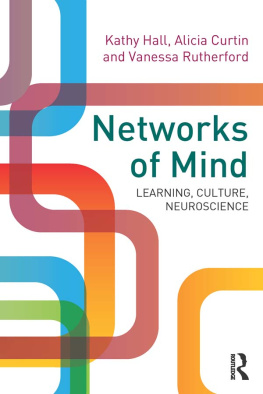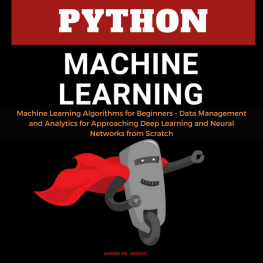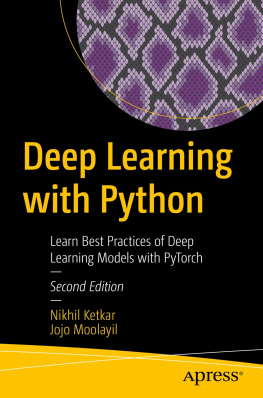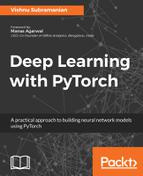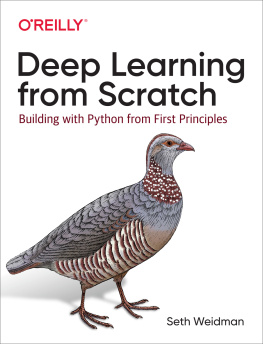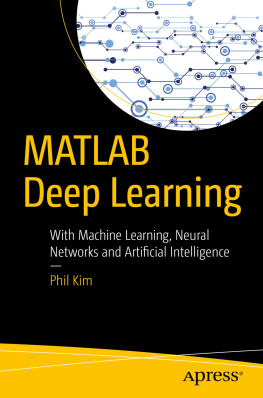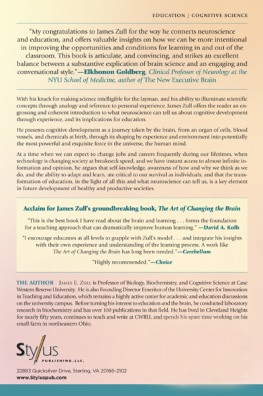Networks of Mind: Learning, Culture, Neuroscience
This ground breaking book is unique in bringing together two perspectives on learning sociocultural theory and neuroscience. Drawing on both perspectives, it foregrounds important developments in our understanding of what learning is, where and how learning occurs and what we can do to understand learning as an everyday process.
Leading experts from both disciplines demonstrate how sociocultural ideas (such as the relevance of experience, opportunity to learn, environment, personal histories, meaning, participation, memory, and feelings of belonging) align with and reflect upon new understandings emerging from neuroscience concerning plasticity and neural networks.
Among the themes critically examined are the following:
Mind and brain
Culture
Ability and talent
Success and failure
Memory
Language
Emotion
Aimed at and accessible to a broad audience and drawing on both schools of thought, Networks of Mind uses case studies and examples to demonstrate that, though the language of sociocultural theory and that of neuroscience appear very different, ultimately the concepts of both perspectives align and converge around some key ideas. The book shows where both perspectives overlap, collide and diverge in their assumptions and understanding of fundamental aspects of human flourishing. It shows how neuroscience confirms some of the key messages already well established by sociocultural theory, specifically the importance of opportunity to learn. It also argues that the ascendency of neuroscience may result in the marginalization of sociocultural science, though the latter, it argues, has enormous explanatory power for understanding and promoting learning, and for understanding how learning is afforded and constrained.
Kathy Hall is Professor and Head of the School of Education, University College Cork.
Alicia Curtin is a lecturer in the School of Education, University College Cork.
Vanessa Rutherford is a post-doctoral research fellow in the School of Education, University College Cork.
Networks of Mind: Learning, Culture, Neuroscience
Kathy Hall, Alicia Curtin
and Vanessa Rutherford

First published 2014
by Routledge
2 Park Square, Milton Park, Abingdon, Oxon, OX14 4RN
and by Routledge
711 Third Avenue, New York, NY 10017
Routledge is an imprint of the Taylor & Francis Group, an informa business
2014 Kathy Hall, Alicia Curtin and Vanessa Rutherford
The right of Kathy Hall, Alicia Curtin and Vanessa Rutherford to be identified as authors of this work has been asserted by them in accordance with sections 77 and 78 of the Copyright, Designs and Patents Act 1988.
All rights reserved. No part of this book may be reprinted or reproduced or utilised in any form or by any electronic, mechanical, or other means, now known or hereafter invented, including photocopying and recording, or in any information storage or retrieval system, without permission in writing from the publishers.
Trademark notice: Product or corporate names may be trademarks or registered trademarks, and are used only for identification and explanation without intent to infringe.
British Library Cataloguing in Publication Data
A catalogue record for this book is available from the British Library
Library of Congress Cataloging in Publication Data
A catalogue record for this book has been requested
ISBN: 978-0-415-68374-6 (hbk)
ISBN: 978-0-415-68375-3 (pbk)
ISBN: 978-1-315-85079-5 (ebk)
Typeset in Bembo
by RefineCatch Limited, Bungay, Suffolk
We dedicate this book to Rita, Emmet, Joan, Willie John, April, Johannah, William, Breege, Camille and all the members of our families, past, present and to come.
Contents
We acknowledge the neuroscientists who generously participated in open-ended interviews with us about their work, its possible implications for learning and development, and about their visions for the future of their discipline. We also thank artist April Curtin, who produced the illustrations on the brain included in of this book is informed by Kathy's writing for that course. Special thanks to Bruce Roberts at Routledge who commissioned the book and thanks too to Hamish Baxter their patience allowed us to devote the necessary time to completing the manuscript.
This book could not have been completed without the support of loved ones; we especially thank Tom, Barry and Ronan.
Rationale and orientation
This introductory chapter sets the scene for the book. It highlights the main themes and messages that will be developed throughout the chapters. It provides a rationale for the focus of the work and gives a flavour of some of the big ideas that will be fleshed out more comprehensively and critically later. It explains the background to the writing of the book and introduces the author team.
Some socioculturalists claim that sociocultural theorizing is on the rise and that culture is cutting edge, frontier thinking (Roth and Tobin, 2007). More recently, other researchers have made similar claims for neuroscience and for cultural neuroscience in particular (Kitayama and Park, 2010). It is appropriate and timely, therefore, to open up such claims for scrutiny and to question their significance in the context of learning, teaching and human flourishing generally. How can we make use of culture as an analytic tool for our work as teachers, researchers, policy makers? How is culture understood by sociocultural and neuroscientific researchers? What are the assumptions and grounds underlying the sociocultural and neuroscientific perspectives and how, if at all, are they complementary? We hope this book will contribute to thinking and practice on such questions. It will examine ways of thinking about culture that can pay dividends for how we foster learning, for how we frame success, competence, failure, and so on, and for how we research learning.
As we write this introduction (17 February 2013), an article in the science section of the New York Times announces that President Obama's administration is planning a ten-year scientific project to examine the brain and build a comprehensive map of its activity. The project, to be called The Brain Activity Map, is expected to trigger some three billion dollars over the next ten years. In his State of the Union address, the President cited brain research as an example of how the government should invest in the best ideas. The designation by a previous USA President of the 1990s as the decade of the brain had already greatly expanded research opportunities and funding streams in neuroscience, with media attention spiralling as a consequence. It is clear that the neurosciences and their sub-disciplines are growing in popularity, status and visibility. Witness the level of interaction on the Internet, TED Talks, TV programmes (e.g. Charlie Rose's Brain Series on Bloomberg TV and Susan Greenfield's Brain Story on the BBC). Because of the recent and rapid expansion of work in neuroscience and its claims about learning and development, as well as its popularity and uptake by educators, it is important to explore its permeation into understandings relevant to education. We set out, therefore, to review the emerging insights from this line of inquiry, explore its fit with established concepts and theories which have emanated from sociocultural science, and consider its utility for education.
Next page
